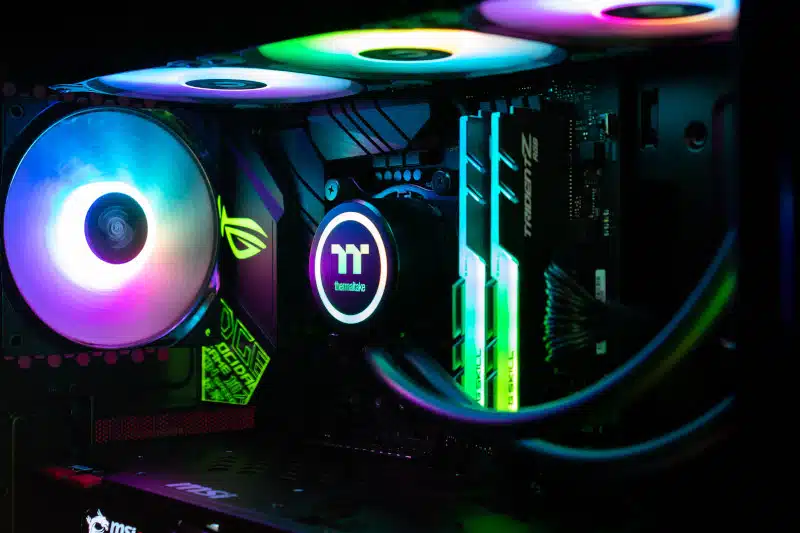CPU Cooling Solutions have become paramount in the age of computing, where the demand for optimal performance and temperature management is higher than ever.
Choosing the right cooling solution for your CPU is paramount. CPU air coolers and AIO (All-In-One) liquid coolers are popular options, each with pros and cons. In this blog post, we’ll explore these CPU cooling solutions, weighing their advantages and disadvantages to help you make an informed decision.
Pros and Cons of CPU Air Coolers
Pros:
- Affordability: One of the standout advantages of CPU air coolers is their cost-effectiveness. They are generally more budget-friendly than AIO liquid coolers, making them attractive for those looking to keep costs down.
- Reliability: Air coolers are known for their reliability and longevity. They have fewer moving parts, reducing the risk of potential leaks or pump failures that can occur with liquid cooling systems.
- Ease of Installation: Installing a CPU air cooler is relatively straightforward, even for beginners. Most come with clear instructions and require minimal setup.
- No Maintenance Required: Air coolers are maintenance-free, eliminating the need for periodic coolant refills or pump maintenance.
Cons:
- Size and Bulk: High-end air coolers can be quite large and may obstruct access to other components on the motherboard or interfere with RAM clearance.
- Limited Cooling Potential: While CPU air coolers can provide adequate cooling for most processors, they may struggle to handle extreme overclocking or the latest high-end CPUs.
- Noise: Some air coolers can produce noticeable noise levels, especially when the CPU is under heavy load.
Pros and Cons of AIO Liquid Coolers
Pros:
- Efficient Cooling: AIO liquid coolers are known for their excellent cooling performance. They can handle high thermal loads and maintain lower temperatures, making them ideal for overclocking enthusiasts.
- Compact Design: AIO coolers have a compact form factor, which leaves more room for other components and enhances the overall aesthetics of the PC build.
- Customization: Some AIO liquid coolers offer customizable RGB lighting and the ability to choose from various radiator sizes and fan configurations, allowing for a personalized look.
- Quiet Operation: Liquid coolers are often quieter than air coolers, thanks to their efficient heat dissipation and lower fan speeds.
Cons:
- Cost: AIO liquid coolers tend to be more expensive than their air-cooling counterparts, which can be a significant factor for budget-conscious users.
- Complex Installation: Setting up an AIO cooler can be more complicated than installing an air cooler, particularly for first-time builders. It involves attaching the radiator, pump, and tubing correctly.
- Maintenance: While AIO coolers require less maintenance than custom liquid cooling loops, they can still be prone to pump or coolant issues over time, albeit less frequently.
Selecting Your Ideal CPU Cooling Solution
In conclusion, the choice between CPU air coolers and AIO liquid coolers depends on your specific needs and preferences. If you’re on a tight budget and prioritize simplicity and reliability, air coolers are an excellent choice. On the other hand, if you demand top-tier cooling performance, are willing to invest a bit more, and enjoy the aesthetic options, AIO liquid coolers might be the way to go. Ultimately, both cooling solutions have merits and drawbacks, so consider your priorities and make an informed decision for your PC build.
If you’re in Davenport, FL, and need expert advice on choosing the suitable CPU cooler or facing any computer-related issues, visit PCMechanic Computer Repair today! I am here to assist you with all your computer needs.


